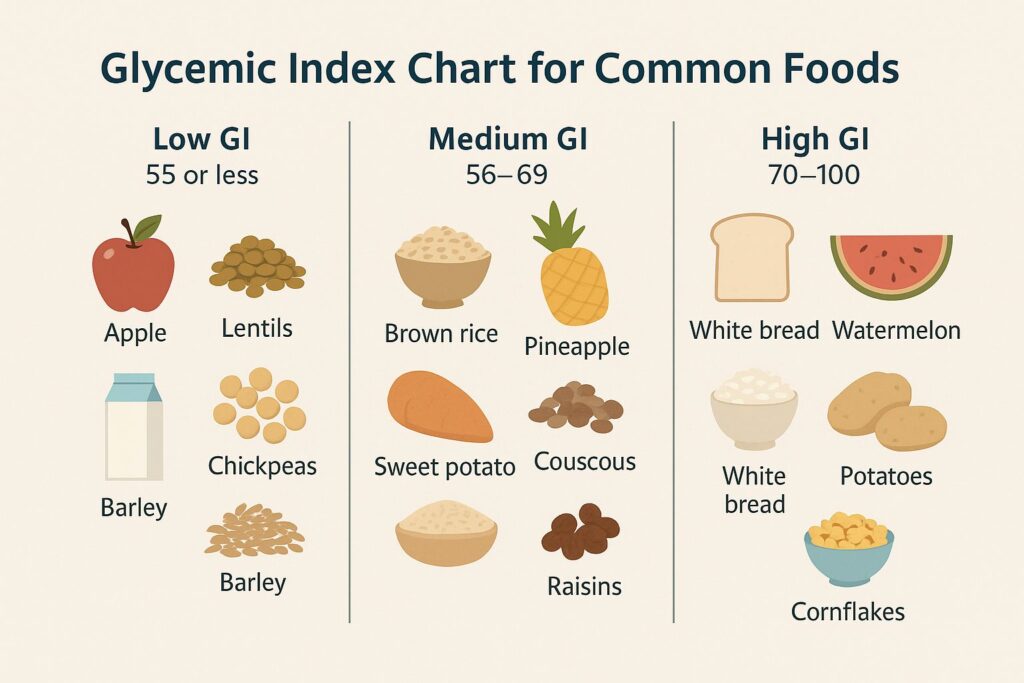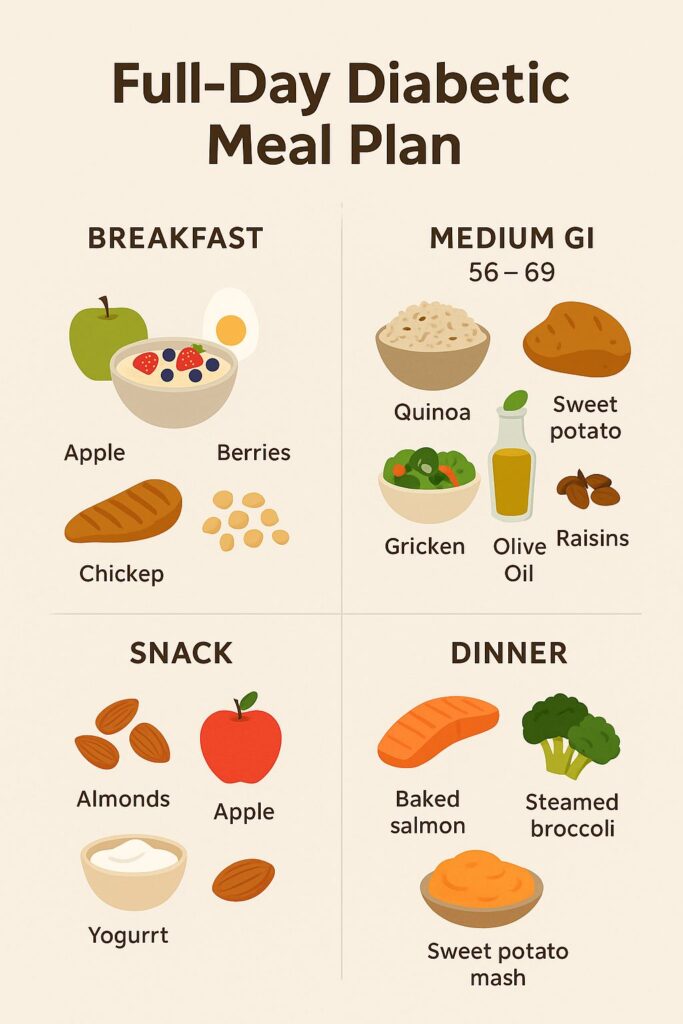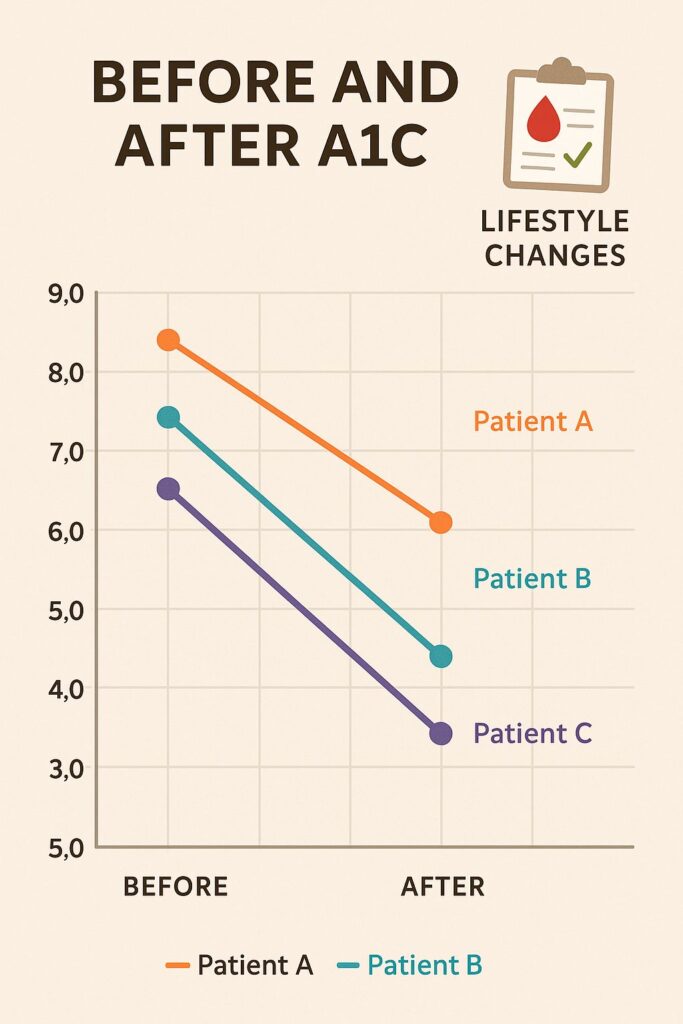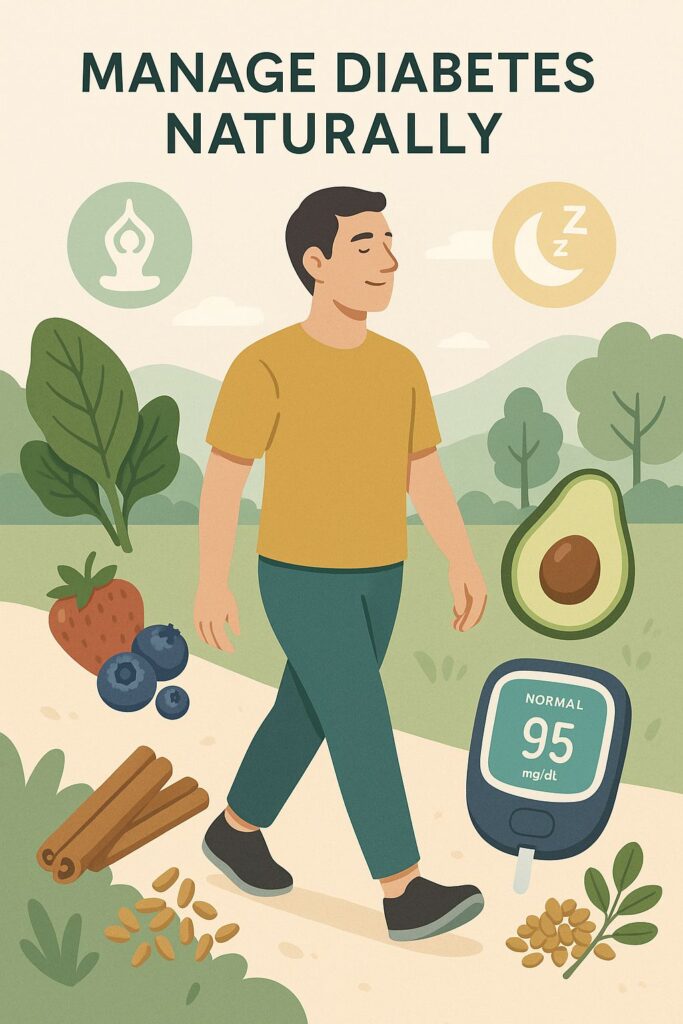Introduction: Taking Control of Diabetes Naturally
If you’ve recently been diagnosed with type 2 diabetes or are looking for holistic ways to improve your blood sugar levels, you might be wondering how to manage diabetes without medication naturally. The good news? It’s absolutely possible—especially in the early stages or with prediabetes. Through strategic lifestyle changes, dietary improvements, regular exercise, and stress management, many individuals successfully manage their diabetes and even reverse early symptoms without relying on medication.
This guide offers an in-depth, evidence-based look at how to manage diabetes naturally. As a healthcare professional, I want to help you take back control—safely and sustainably.
Disclaimer: This guide is for educational purposes only and does not replace professional medical advice. Always consult your healthcare provider before making changes to your diabetes management plan.
Understanding Diabetes
Diabetes mellitus is a chronic condition where your body either doesn’t produce enough insulin or cannot effectively use the insulin it does produce. This results in high blood sugar levels, which, over time, can lead to complications affecting the heart, kidneys, eyes, and nerves.
There are two primary types:
• Type 1 Diabetes: Autoimmune, usually diagnosed in childhood.
• Type 2 Diabetes: Often linked to lifestyle and diet; it’s the most common form and can frequently be managed naturally in its early stages.
Can Diabetes Be Managed Without Medication?
Yes—type 2 diabetes and prediabetes can often be managed without medication through diet, exercise, stress management, and weight control. Studies show that lifestyle changes can:
• Improve insulin sensitivity
• Lower HbA1c (average blood sugar over 3 months)
• Prevent or delay the need for medications
A 2022 study published in Diabetes Care found that intensive lifestyle changes reduced diabetes progression by 58% in high-risk individuals.
Top Lifestyle Strategies to Manage Diabetes Naturally
1. Eat a Low-Glycemic, Whole-Food Diet
Eating foods that don’t spike your blood sugar is one of the most powerful tools you have. This means focusing on low-glycemic index (GI) foods, high in fiber and nutrients.
Best Foods to Include:
• Leafy greens (spinach, kale)
• Non-starchy vegetables (broccoli, zucchini)
• Whole grains (quinoa, oats)
• Healthy fats (avocado, olive oil, nuts)
• Lean proteins (chicken, tofu, fish)
• Legumes and lentils
Foods to Limit or Avoid:
• White bread, pasta, and rice
• Sugary beverages and soda
• Baked goods and sweets
• Processed snacks and chips

2. Exercise Regularly
Exercise improves insulin sensitivity and helps your muscles absorb glucose. It’s also key for weight management.
Recommended Routine:
• Aerobic exercise: 30 minutes a day, 5 days/week (walking, cycling, swimming)
• Strength training: 2–3 days/week (resistance bands, weights)
• Movement breaks: Stand or walk every 30 minutes during sedentary periods
📊 According to the American Diabetes Association (ADA), physical activity can lower blood glucose for up to 24 hours.
3. Maintain a Healthy Weight
Excess abdominal fat is closely linked to insulin resistance. Losing even 5–10% of your body weight can significantly improve your blood sugar control.
Weight Loss Tips:
• Avoid crash diets—aim for 1–2 lbs/week
• Prioritize protein and fiber
• Track progress with a food diary or app
4. Reduce Stress
Chronic stress increases cortisol, a hormone that raises blood sugar levels. Managing stress is essential to managing diabetes.
Stress Management Techniques:
• Deep breathing or meditation (10 mins/day)
• Yoga or tai chi
• Journaling or gratitude practices
• Talking with a counselor
5. Get Quality Sleep
Sleep deprivation reduces insulin sensitivity and increases appetite hormones like ghrelin.
Sleep Tips:
• Stick to a regular bedtime/wake time
• Avoid screens 1 hour before bed
• Create a dark, cool, quiet environment
• Aim for 7–9 hours per night
Natural Supplements and Herbs
Certain herbs and supplements may support healthy blood sugar, but always talk to your healthcare provider first.
| Supplement | Evidence Based Benefit |
| Berberine | Improves insulin sensitivity (Comparable to metformin) |
| Cinnamon | May lower fasting blood glucose |
| Alpha-lipoic acid | Reduces oxidative stress, Supports nerve health |
| Fenugreek seeds | Improves glucose tolerance |
| Magnesium | Helps insulin function |
Source: Healthline on diabetes supplements
Foods to Eat and Avoid
Eat More Of:
• High-fiber foods (chia seeds, flaxseeds)
• Fermented foods (yogurt, kimchi) for gut health
• Low-carb fruits (berries, grapefruit)
• Healthy fats (olive oil, fatty fish)
Avoid or Limit:
• Refined carbs
• Sugary drinks
• Processed meats
• Alcohol (especially on an empty stomach)
Sample 1- Day Meal Plan
| Meal | Example |
| Breakfast | Scrambled eggs with spinach+1/2 avocado |
| Snack | Greek yogurt+ chia seeds |
| Lunch | Grilled chicken salad+ olive oil vinaigrette |
| Snack | Handful of almonds+ cucumber slices |
| Dinner | Baked salmon, quinoa, and steam broccoli |

Real-Life Success Stories: Managing Diabetes Without Medication
Hearing about real people who’ve succeeded in managing their diabetes naturally can be incredibly motivating. While everyone’s journey is different, these case studies illustrate how diet, exercise, and lifestyle changes can lead to impressive results—even remission.
Case Study #1: John, 52 — Reversed Prediabetes with Diet and Walking
Background:
John was diagnosed with prediabetes during a routine physical exam. His A1C was 6.1%, and his doctor warned that he was on the verge of developing type 2 diabetes.
Actions Taken:
• Swapped out processed carbs for vegetables and whole grains
• Started walking 30–45 minutes daily after dinner
• Tracked his meals and blood sugar in a smartphone app
Results (in 3 months):
• Lost 15 pounds
• A1C dropped to 5.6%
• No longer classified as prediabetic
“I didn’t think walking and eating more greens would matter that much. But these small changes added up quickly.”
Case Study #2: Maria, 61 — Avoided Insulin with Plant-Based Eating
Background:
Maria had type 2 diabetes for 7 years and was on metformin. Her doctor recently suggested she may need insulin due to rising A1C (8.5%).
Actions Taken:
• Switched to a low-fat, whole-food, plant-based diet (WFPB)
• Cut out refined sugar and processed food
• Joined a local diabetes support group for accountability
Results (in 6 months):
• Lost 25 pounds
• A1C decreased to 6.3%
• Able to stay off insulin with her doctor’s approval
“I never believed food alone could do so much. Now I’m off all meds, and my energy is back.”
Maria followed principles similar to those in the Plant-Based Prevention Of Disease (P-POD) initiative, supported by emerging studies.
Case Study #3: DeShawn, 45 — Combined Strength Training with Mindfulness
Background:
DeShawn, a corporate executive, had erratic blood sugars due to high stress, poor sleep, and sedentary habits. His A1C was 7.2%, and he felt constantly fatigued.
Actions Taken:
• Began a gym routine: strength training 3x/week, walking 5x/week
• Started meditating 10 minutes daily and using a sleep tracker
• Replaced late-night snacking with herbal tea and nuts
Results (in 4 months):
• A1C dropped to 6.0%
• Lost 12 pounds and improved muscle tone
• Reported more mental clarity and stable mood
“I didn’t just want to treat numbers—I wanted my life back. Strength training gave me structure. Meditation helped me slow down.”
Case Study #4: Anita, 34 — Young Mother Balancing Family and Health
Background:
Anita was diagnosed with gestational diabetes during pregnancy and later developed early-stage type 2 diabetes. She was overwhelmed juggling family life and health.
Actions Taken:
• Meal prepped once a week to reduce stress and reliance on fast food
• Followed a Mediterranean-style eating pattern
• Took daily walks with her toddler in the stroller
Results (in 5 months):
• A1C dropped from 6.7% to 5.9%
• Gained energy and confidence
• Created a sustainable routine with her family
“I made it a family thing—walks, healthy dinners. It stopped being a chore and became a lifestyle.”
What These Stories Teach Us
Here’s what these success stories have in common:
| Common Factor | Benefit |
| Regular physical activity | Improved insulin sensitivity |
| Realistic, sustainable diet | Lowered glycemic load |
| Accountability/support | Increased motivation and consistency |
| Stresss/sleep management | Reduce cortisol, more stable blood sugars |
| Weight loss((when needed) | Enhanced glucose control and overall health |

Ready to Start Your Own Success Story?
If you’re feeling inspired, take a cue from these individuals:
• Start small. You don’t need to change everything overnight.
• Track your progress. Use a glucose monitor or app.
• Involve others. A walking partner or accountability buddy makes a big difference.
• Work with your doctor. Share your lifestyle changes and monitor labs together.
When Lifestyle Changes May Not Be Enough
Despite best efforts, some people may still need medications. This doesn’t mean failure—it means your body requires additional support. Lifestyle changes will still make medications more effective and reduce long-term complications.
Remember: Type 2 diabetes is progressive. Work closely with your healthcare provider to monitor your progress.
Key Takeaways
• You can manage diabetes without medication naturally through consistent lifestyle changes.
• A low-GI, whole-food diet, regular exercise, and stress and sleep management are your strongest tools.
• Weight loss, even small amounts, can lead to major improvements.
• Supplements may help but are not a substitute for diet and exercise.
• Always consult your doctor before starting or stopping any diabetes treatment.
Frequently Asked Questions
Can you reverse diabetes naturally?
Yes, especially in early stages or prediabetes. Many people achieve normal blood sugar levels through lifestyle changes, though long-term monitoring is still essential.
How long does it take to manage diabetes without medication?
Improvements can be seen in a few weeks with consistent changes, but sustainable management is a long-term process.
Do I need to avoid all carbs?
No, focus on complex carbohydrates with fiber, like quinoa and vegetables, and avoid simple sugars and refined carbs.
What is the best exercise for managing diabetes?
Walking, swimming, and resistance training are all excellent. Consistency matters more than intensity.
Should I take supplements?
Some supplements like berberine and cinnamon may help, but always check with your doctor first.




Pingback: Is Diabetes Reversible? What Science Says About Reversing Type 2 Diabetes - Pharma Heals
Pingback: Diabetes Prediction Using Machine Learning: Models, Data, and Accuracy - Pharma Heals
Pingback: Frequent Urination Diabetes: Causes, Symptoms, and Effective Management - Pharma Heals
Pingback: Attar Ayurveda Jamun Seed Powder Review: Best Diabetes Aid? - Pharma Heals
Pingback: Syringe for Insulin: Essential Guide to Proper Selection and Usage in 2025 - Pharma Heals
Pingback: Diabetes 2 Symptoms Men: Early Warning Signs and Key Health Indicators to Watch For - Pharma Heals